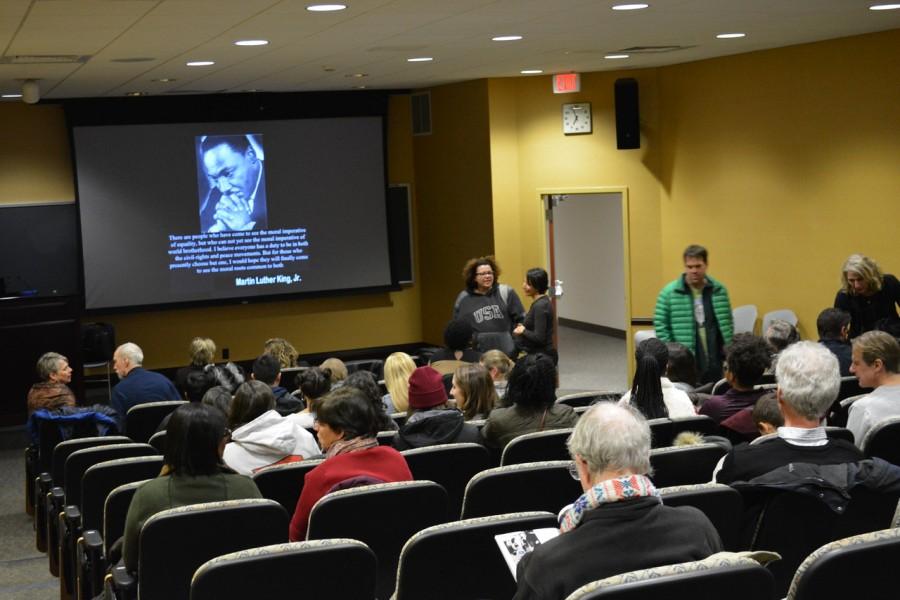Hamza, Iraqi Citizen and photojournalist, discusses war and firsthand suffering with students
January 26, 2016
In connection with the Violence of Hate week, also known as the Martin Luther King, Jr. Commemorative Week, the President’s Diversity Council launched a mini-series encouraging the campus community to enter into constructive dialogues regarding Dr. King’s principles and legacy. The first speaker of the mini-series, Iraqi citizen Haider Hamza, spoke on Jan. 18.
Hamza is an Iraqi scholar and photojournalist who was born under Saddam Hussein’s rule and lived in Iraq through the U.S. invasion of Iraq, the Gulf War, and the Iran-Iraq War. Throughout his life in Iraq, Hamza was arrested, detained over 60 times, kidnapped twice, and witnessed the murder of family members. Still, Hamza graduated from the University of Baghdad in 2006 and moved to the United States in 2007 after winning a Fulbright scholarship that allowed him to study at Columbia University as a graduate student. By working as a journalist, he saw war through the points of view of both civilians and soldiers.
Hamza remarked that his school in Iraq taught him about Martin Luther King, Jr. in a more global context than is taught in the American educational system; he learned about King’s impact on the world rather than his impact in the United States alone.
When asked by a member of the audience, “why aren’t you angry about the [Iraq War]?” Hamza replied that he had seen death on both sides and was equally sad about the suffering both Iraqi and U.S. soldiers had endured, and therefore, could not be angry at either side. He also said that he understood that the violence produced by war is driven by fear, which is a natural human reaction. Hamza used Dr. King’s quote, “a riot is the language of the unheard” to further describe his understanding of violence.
“Hearing about war from the point of view of someone who saw it first-hand really opened my eyes to the true meaning and application of Dr. Martin Luther King’s message today. So often we learn about him in class and we know his message, but we have to realize that knowing the message of MLK is different from applying it as Haider Hamza encouraged,” Katie Carroll ’19 said.
Through the destruction of war, Hamza managed to photograph what he described as “moments of pure humanity.” Through these and other pictures, Hamza detailed what he learned about war and the human ability to adapt to it.
Administrative Assistant of the GRIOT Institute for Africana Studies Tameka Thompson said that what interested and comforted her about Hamza was that “with each picture, he was able to tell the story of the person on the other end of the camera.”
More of Hamza’s work can be found on an episode of the podcast series “This American Life” titled “Talk to an Iraqi.”






















